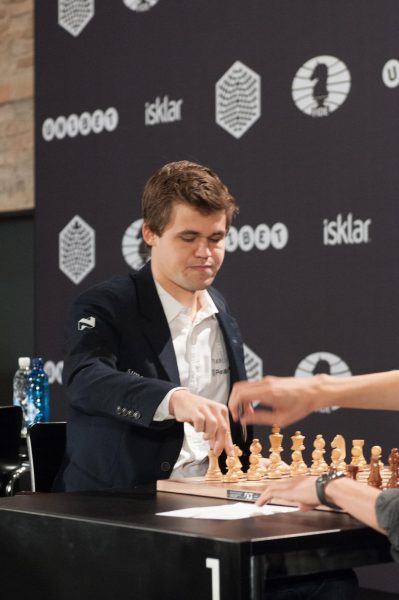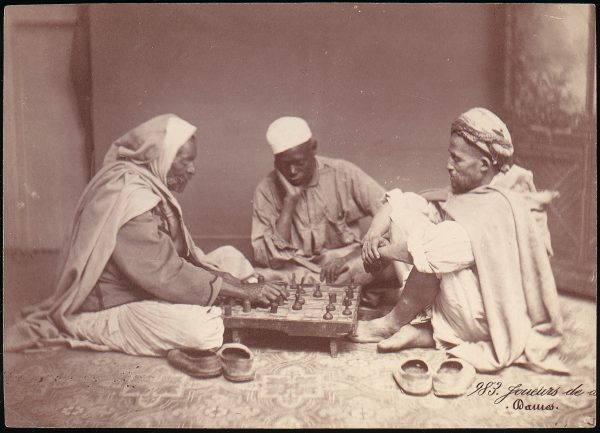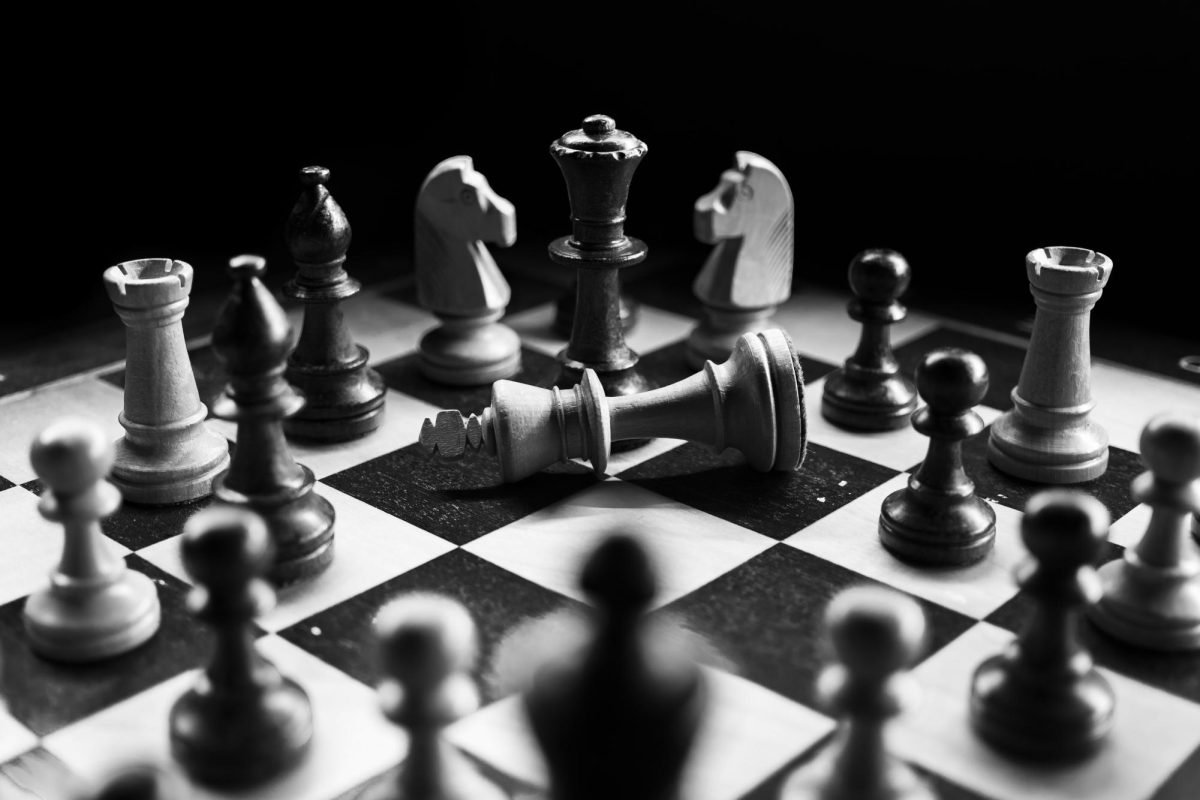Time and time again, news will resurface about the newest chess scandal or the newest accused player. The most prestigious players become the accusers and the accused. It raises the greater question as to whether or not these players truly are beyond skilled and talented, or if it is all a facade. It brings into question how genuine their playing is, and it will continue to surround players for their careers.
In the world of chess, Magnus Carlsen is widely regarded as one of the best players concerning skill and strategy. All considered, new announcements have brought the reigning champion to public attention for reasons beyond his exceptional gameplay. Carlsen’s accusations against fellow competitors have initiated a discussion that goes beyond individual matches, questioning the effectiveness of current cheating detection methods in the era of advanced chess engines. The Sinquefield Cup in 2022, an annual top chess tournament with a grand prize of $100,000, took an unexpected turn of events when Carlsen faced a defeat at the hands of the rising star, Hans Neimann.

Chess has been a long-standing game that dates back to the 6th century in India during the Gupta dynasty. Now, more than 1,500 years later, it is still widely renowned and played in 241 countries.
It is safe to say that after centuries of evolution and modernization, players have become incredibly advanced and skilled with thousands of techniques and styles of playing. Chess was able to be created into a system of rankings and titles. Chess has evolved to be more than a mere game, and it has turned into a renowned and well-respected game that people from all around the world enjoy.

However, an issue arises. With any competition, people will always go to great lengths to be the best, or to beat the best. Although there are many efforts to try and fully prevent any dishonesty in the games, it is hard to fully ensure that no foul play is involved.
Methods of cheating include chess engines, with their unparalleled analytical capabilities, which can suggest the best and most optimal moves, increasing the potential to allow a player to remain undetected from cheating. This inherent uncertainty casts a shadow over both in-person and online chess competitions, creating a sense of disarray within the sport.
Within the world of chess, cheating has always been an issue. Allegations have emerged over many years through different chess tournaments. Every time during these periods of lingering accusations, it will always result in a negative lasting impression on the accused.
Recently, there has been an overload of cheating accusations and scandals in the chess circuit, causing distrust and uncertainty in the reality and true skills of players who can be considered some of the best in the 21st century.
What unfolded during the Sinquefield Cup in 2022 surprised the chess community as Carlsen, who chose to not continue playing in the tournament, raised concerns about Neimann’s proven history of cheating in online competitions. These allegations were accompanied by suspicions surrounding Neimann’s unconventional play pattern, introducing an element of doubt regarding the integrity of the game.
The Lawsuit
On October 20, 2022, Niemann filed a federal lawsuit in Missouri against Carlsen and his company, Chess.com, and two other chess players. Niemann claimed that he had been subjected to defamation and unlawful collusion. Simply put, he had said that the defendants had tarnished Niemann’s reputation and name. Niemann requested $100 million in damages.
Later in the year, the suit was dismissed. The judge found that Neimann’s ban from Chess.com was based on previous cheating scandals in online competitions. In general, it seemed that his antitrust claims were not a solidified case.
Niemann has denied that he has ever cheated in over-the-board games, but he has admitted to cheating multiple times in online chess. Chess.com made a report that claimed Niemann’s over-the-board progress was ‘unusual’ but they could not provide any proof of in-person cheating. ‘Chess.com is unaware of any concrete evidence proving that Hans is cheating over the board or has ever cheated over the board,’ the report said.
Carlsen and Suleymenov
Recently, on October 13th, 2023, after Carlsen and Suleymenov’s tournament round, Carlsen subtly hinted that Alisher Suleymenov was possibly cheating during their round at the Qatar Cup. Carlsen took to X, formerly known as Twitter, to share his frustrations. His complaint centered around Suleymenov’s use of a mechanical watch. He slightly hinted that the usage of his watch could be used to play unfairly. These incidents have brought a shared concern among top professionals — the insufficiency of current measures to address cheating in chess.
The prevailing method of cheating detection involves scrutinizing a player’s moves and comparing them to an engine’s concept of ideal play. A player is flagged for potential cheating if a high percentage of moves align with the engine’s optimal plays.
Cheating in-person rounds is difficult, but is still able to be done through receiving assistance from a person or bot that is able to tell you what move to make next. For example, in the proof of concept article written by James Stanely, he provides a direct example of communicating with a chess engine through his socks. Essentially, by utilizing a combination of buttons and vibrations embedded in his socks, Stanley was able to communicate chess moves to the engine, and the engine responded by transmitting vibrations that corresponded with moves to direct Stanley to play specific moves.
This is merely just an example of a method to cheat through vibrations. It shows that although cheating during in-person chess tournaments may seem difficult, it is still possible through creative tactics.
However, going back to the Carlsen and Suleymenov situation, although digital watches are strictly prohibited, Carlsen said he suspected that there was some way that Suleymenov was able to cheat. During the round, Suleymenov can be seen repeatedly touching his watch and fidgeting. Carlsen viewed this as a deceptive method for possible cheating tactics.
Even through this, no real pieces of evidence have come out to prove Carlsen’s suspicions.
Nakamura and Kramnik
Alongside this dispute, other accusations occurred recently against Hikaru Nakamura by Vladimir Kramnik. Kramnik accused Nakamura of cheating during his online blitz games on Chess.com, in which Nakamura won 43 games in a row. Nakamura denied all accusations and responded to this by saying that Kramnik was “cherry-picking” the statistics.
Chess.com looked further into these allegations According to Chess.com, “In the case of the recent accusations against Hikaru Nakamura by Vladimir Kramnik, we can say that we have generated nearly 2,000 individual reports on Hikaru’s games… and have found no incidents of cheating… We have confirmed these results with external statisticians… With the deepest respect for former World Champion Vladimir Kramnik, in our opinion, his accusations lack statistical merit.” Essentially, Chess.com mentions how they looked into the allegations, and that they consulted many experts, to find that they believed Kramnik’s accusations held no sincerity.
Although dismissed by Chess.com, viewers still speculate and debate over whether this was deserved, or if the algorithm truly disproved this accusation or not.
After all this, people have continued to speculate over whether Carlsen was in the right for his accusations against Suleymenov, Kramnik against Nakamura, Niemann against Carlsen, and so on. Cheating can have the most detrimental impact on a player’s engagement and continuation in the chess community. With these series of events, people have become much more wary of chess tournaments, especially as we advance with AI technology. Although the efforts of cheating will continue to prevail, chess players and chess officials work to make sure that cheating will be more and more challenging over the years.
This also brings viewers and enjoyers of chess to wonder whether the seemingly strategic gameplay is even a true feat of skill, or if it is all falsified. The sense of distrust lingers among the community, leaving critics to continue to speculate.
According to Chess.com, “In the case of the recent accusations against Hikaru Nakamura by Vladimir Kramnik, we can say that we have generated nearly 2,000 individual reports on Hikaru’s games… and have found no incidents of cheating… We have confirmed these results with external statisticians… With the deepest respect for former World Champion Vladimir Kramnik, in our opinion, his accusations lack statistical merit.”

